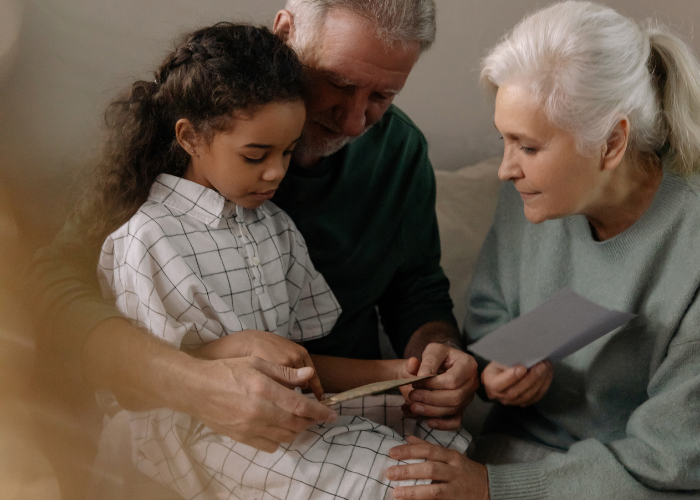
The loss of a loved one is a difficult experience for anyone, but it can be especially challenging for children. Understanding how to support kids through their grief is crucial for helping them process their emotions and begin healing. At Alfred James Funeral Homes, we recognize the importance of providing compassionate care for families, including the youngest members. Here are some strategies and resources to help children cope with loss.
Open and Honest Communication
Children need clear, honest explanations about death that are appropriate for their age and developmental level. Avoid using euphemisms like “gone to sleep” which can be confusing and frightening.
- Be Direct: Use simple and direct language to explain what has happened.
- Encourage Questions: Let children ask questions and answer them as honestly as possible.
Validate Their Feelings
It’s important to validate children’s feelings and let them know that it’s okay to feel sad, angry, or confused.
- Acknowledge Emotions: Recognize and accept all emotions as part of the grieving process.
- Offer Comfort: Reassure them that these feelings are normal and provide comfort through hugs, kind words, and attentive listening.
Maintain Routines
Keeping daily routines can provide a sense of security and normalcy during a time of upheaval.
- Consistency: Stick to regular schedules for meals, bedtimes, and school activities.
- Special Activities: Incorporate enjoyable activities that the child looks forward to, helping them feel more secure and grounded.
Creative Expression
Encourage children to express their feelings through creative activities such as drawing, painting, writing, or playing.
- Art Projects: Art can be a therapeutic way for children to express what they might not be able to say in words.
- Memory Books: Help them create a memory book with pictures and stories about the loved one who has passed away.
Professional Support
Sometimes, children may need additional support from a professional. Seeking help from a child psychologist or grief counsellor can be beneficial.
- Counselling: Professional counsellors can provide a safe space for children to express their feelings and develop coping strategies.
- Support Groups: Joining a support group for grieving children can help them feel less isolated.
Recommended Books for Children
Books can be an excellent resource for helping children understand and cope with grief. Here are some recommended titles:
- “The Invisible String” by Patrice Karst: This book teaches children that they are always connected to loved ones, no matter how far apart they are.
- “When Dinosaurs Die: A Guide to Understanding Death” by Laurie Krasny Brown and Marc Brown: This book provides clear explanations about death and helps children understand the concept.
- “The Memory Box: A Book About Grief” by Joanna Rowland: This story encourages children to create a memory box to keep special memories of their loved one.
- “I Miss You: A First Look at Death” by Pat Thomas: This book gently explains death and the emotions that come with it, making it suitable for young children.
- “Saying Goodbye to Daddy” by Judith Vigna: A story that addresses the emotions children feel after the loss of a parent.
Be Patient and Present
Grief is a process that takes time. Be patient with children as they navigate their emotions and offer consistent support.
- Regular Check-Ins: Frequently check in to see how they are doing and offer reassurance.
- Long-Term Support: Understand that grieving doesn’t have a set timeline and be available to support them over the long term.
Conclusion
Helping children cope with loss requires sensitivity, patience, and understanding. By maintaining open communication, validating their feelings, and providing opportunities for creative expression, parents and caregivers can support children through their grief. At Alfred James Funeral Homes, we are committed to offering compassionate care and resources for families dealing with loss.
For more information on how we can support you and your family, visit Alfred James Funeral ‘how we can help’ or contact us directly.

